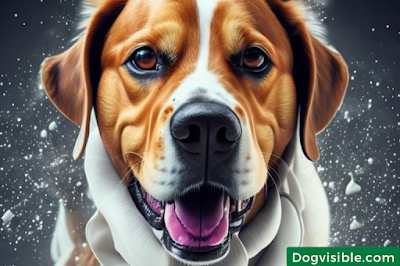Belgian Shepherd - A Comprehensive Guide to Belgian Shepherd Development
The Belgian Shepherd is a highly intelligent and versatile breed that has been around for over a century. They were originally bred for herding and guarding livestock, but over time, they have become popular for a variety of purposes, including law enforcement, search and rescue, and even as family pets. If you are considering bringing a Belgian Shepherd into your home, it is important to understand their development from puppyhood to adulthood. In this comprehensive guide, we will cover all aspects of Belgian Shepherd development, including their physical and mental growth, training, and socialization.
Physical Development
Belgian Shepherds are a medium-to-large sized breed, with males typically weighing between 60-80 pounds and females weighing between 40-60 pounds. They are known for their athletic build and high energy levels. When they are born, they are small and fragile, weighing only a few pounds. Over the first few weeks of life, they will grow rapidly, doubling their weight within the first week and continuing to gain weight steadily.
By the time a Belgian Shepherd puppy is three months old, they will have grown to about one-third of their adult size. They will still be very playful and curious, but they will also start to develop their adult teeth and jaws. It is important to provide plenty of chew toys during this time to help with teething and prevent destructive chewing behaviors.
At six months old, a Belgian Shepherd puppy will be about half of their adult size. They will have more energy and require more exercise to prevent them from becoming bored and destructive. This is also a good time to start training them in basic obedience commands and socializing them with other dogs and people.
Between nine and twelve months old, a Belgian Shepherd puppy will be close to their adult size and weight. They will have more muscle mass and their coat will be fully grown in. It is important to continue training and socializing them during this time, as this is when they will start to develop their adult personalities.
Mental Development
Belgian Shepherds are highly intelligent dogs and they require plenty of mental stimulation to keep them happy and healthy. From a young age, it is important to provide them with plenty of toys and puzzles that challenge their minds and keep them engaged.
Training is also a crucial aspect of mental development in Belgian Shepherds. They are eager to please their owners and enjoy learning new things. Positive reinforcement training methods work best with this breed, as they respond well to praise and rewards.
Socialization
Socialization is essential for all dogs, but it is especially important for Belgian Shepherds. They are naturally protective and can be wary of strangers if they are not properly socialized. From a young age, it is important to expose them to a variety of people, animals, and situations to help them develop into well-rounded dogs.
It is also important to socialize Belgian Shepherds with other dogs, as they can be dominant and territorial if they are not used to being around other dogs. Puppy socialization classes and playdates with other dogs can help them learn how to interact appropriately with other animals.
Training
Belgian Shepherds are highly trainable dogs and enjoy learning new things. From a young age, it is important to establish a consistent training routine that includes basic obedience commands like sit, stay, come, and heel.
Positive reinforcement methods work best with this breed, as they respond well to praise and rewards. Harsh training methods or punishment can cause them to become fearful or aggressive.
Exercise
Belgian Shepherds are high-energy dogs and require plenty of exercise to keep them happy and healthy. They enjoy long walks, runs, and hikes, and they also excel at agility and other dog sports.
It is important to provide them with plenty of opportunities for exercise and mental stimulation, as this can help prevent destructive behaviors like chewing or digging. It is also important to note that Belgian Shepherds should not be left alone for long periods of time, as they thrive on human companionship and can become anxious or destructive if left alone for too long.
Health
Belgian Shepherds are generally healthy dogs, but like all breeds, they are prone to certain health issues. Some of the most common health issues in Belgian Shepherds include hip dysplasia, elbow dysplasia, and progressive retinal atrophy.
It is important to have your Belgian Shepherd regularly checked by a veterinarian and to maintain a healthy diet and exercise routine to help prevent these health issues from developing.
It is important to remember that Belgian Shepherds require a lot of attention and exercise, and they should not be left alone for long periods of time. With patience and consistency, however, they can become loyal and loving members of any family. If you are considering bringing a Belgian Shepherd into your home, be sure to do your research and work with a reputable breeder or rescue organization to find the perfect match for you and your family.
In conclusion, the development of a Belgian Shepherd from puppyhood to adulthood is a complex and rewarding process. With proper training, socialization, and exercise, these highly intelligent and versatile dogs can become wonderful companions and even excel in a variety of roles, including law enforcement, search and rescue, and as family pets.






